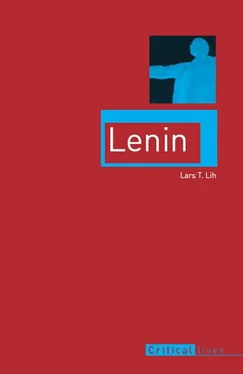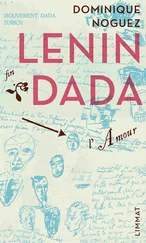21 Taken from Lenin’s own summary in 1907 of the implications of his earlier book, The Development of Capitalism (published in 1899) ( PSS 3:13; CW 3:31).
22 Lenin, PSS 55:1–2; CW 37:66 (letter of 5 October 1893).
23 Karl Kautsky, Das Erfurter Programm [1892] (Berlin, 1965), p. 250.
24 Ibid., p. 219.
25 Grigory Zinoviev, Istoriia Rossisskoi Kommunisticheskoi Partii (bolshevikov) (Leningrad, 1924), p. 116.
26 Lenin, PSS 1: 311–2; CW 1:300.
2 The Merger of Socialism and the Worker Movement
1 Boris Gorev, Iz partiinogo proshlogo: Vospominaniia, 1895–1905 (Leningrad, 1924), p. 24.
2 V. I. Lenin, Polnoe sobranie sochinenii , 5th edn (Moscow, 1958–65), vol. 6, p. 152; Lars T. Lih, Lenin Rediscovered: ‘What Is to Be Done?’ in Context (Haymarket, 2008), p. 811.
3 Lenin, PSS 1:354–412; CW 1:340–95 (1894).
4 Lenin, PSS 46:12; CW 34:24 (letter of 16 August 1897).
5 Karl Kautsky, Das Erfurter Programm [1892] (Berlin, 1965).
6 Lenin, PSS 4:189; CW 4:217 (1899).
7 Lenin, PSS 2:101; CW 2:112 (1896).
8 Semën Kanatchikov, A Radical Worker in Tsarist Russia: The Autobiography of Semën Ivanovich Kanatchikov , ed. Reginald Zelnik (Stanford, CA, 1986), p. 70 (translation slightly modified). These memoirs were originally published in 1929. Kanatchikov puts the key phrases of his younger self and his comrades in quotes.
9 Ibid., p. 98.
10 From the so-called Credo , which evoked strong protests from Lenin and other Social Democrats; the full text can be found in Lenin PSS 4:165–9; CW 4:171–4 (1899).
11 Paul Miliukov, Russia and its Crisis [1905] (London, 1962), pp. 350–51.
12 Lenin, PSS 2:114; CW 2:125 (1896).
13 Lenin, PSS 2:300, 274; CW 2:302, 278 (1897).
14 Lenin, PSS 2:111–12; CW 2:123 (1896).
15 Lenin, PSS 2:460–61; CW 2:341–2 (1897).
16 Lenin’s own words, from an unpublished biographical sketch written in 1917 (Lenin PSS 32:21).
17 Martov, Zapiski Sotsial-demokrata [1922] (Cambridge, MA, 1975).
18 Lenin, PSS 2:467; CW 2:348 (1897).
19 As cited in Miliukov, Russia and its Crisis, pp. 237–8.
20 Letter of 31 December 1928, written to the daughter of the deceased Inessa Armand, as published in Izvestiia TSK KPSS , 1989, no. 4, p. 184 (ellipsis in original).
21 Moissaye J. Olgin, The Soul of the Russian Revolution (New York, 1917), pp. 282–91.
22 M. Liadov, Istoriia Rossiiskoi Sotsialdemokraticheskoi rabochei partii (St Petersburg, 1906), vol. 2, p. 64.
23 Lenin, PSS 2:458–65; CW 2:339–45.
24 Lenin, PSS 4:195–6; CW 4:223–4.
25 Martynov, ‘Avtobiografiia’, in Deiateli SSSR i revoliutsionnogo dvizheniia Rossii: entsiklopedicheskii slovar’ Granat [1925–6] (Moscow, 1989), p. 525.
26 Lenin, PSS 2:268–9; CW 2:350 (1897).
27 K. N. Morozov, Partiia sotsialistov-revoliutsionerov v 1907–1917 gg. (Moscow, 1998), p. 40.
28 Lenin, PSS 6:132–3; Lih, Lenin Rediscovered , p. 794.
29 Pavel Axelrod, in a letter to Kautsky published in Iskra , 25 June 1904.
30 Aleksandr Nikolaevich Potresov, Izbrannoe (Moscow, 2002), pp. 67–120.
31 I. V. Stalin, Sochineniia (Moscow, 1946–52), vol. 4, pp. 308–9.
32 Perepiska V. I. Lenina i redaktsii gazety ‘Iskra’ s sotsial-demokraticheskimi organizatsiiami v Rossii, 1900–1903 gg. (Moscow, 1969–70), vol. 2, pp. 28–9 (letter of 6 June 1902).
33 O. Piatnitsky, Memoirs of a Bolshevik [1925] (New York, n.d.), pp. 56–7.
34 Vladimir Ivanshin in Rabochoe Delo , No. 8 (November 1900), p. 11.
35 Lenin, PSS 6:107; Lih, Lenin Rediscovered , pp. 770–71.
36 Lenin, PSS 6:171; Lih, Lenin Rediscovered , p. 828.
1 This paraphrase of the meaning of revoliutsiia do kontsa comes from Bolshevik émigré Gregor Alexinsky in his still useful book Modern Russia (London, 1913), p. 254. In Lenin’s Collected Works , the phrase do kontsa is translated in various ways, including ‘through to victory’ and ‘to its [the revolution’s] consummation’.
2 John W. Steinberg et al., eds, The Russo-Japanese War in Global Perspective: World War Zero (Leiden, 2005), 2 vols.
3 Zinoviev, Sochineniia (Moscow, 1923–4), vol. 15, p. 21 (from a 1918 biography of Lenin).
4 ‘Bolshevism as a tendency took definite shape in the spring and summer of 1905’ (Lenin, PSS 19:364; CW 16:380) (1910). Axelrod’s letter to Kautsky was published in Iskra no. 68 (25 June 1904).
5 Lenin, PSS 9:126–36; CW 8:17–28.
6 M. Liadov, Iz zhizni partii (Moscow, 1956), p. 114 (originally published in 1926).
7 Lenin, PSS 12:336; CW 10:261 (1906).
8 Lenin, PSS 12:319; CW 10:245 (1906).
9 Lenin, PSS 17:49–50; CW 15:61 (1908).
10 Lenin, PSS 12:322; CW 10:248 (1906).
11 William English Walling, Russia’s Message: The True World Import of the Revolution (New York, 1908); Walling, Sovietism : The ABC of Russian Bolshevism – According to the Bolshevists (New York, 1920).
12 Walling, Russia’s Message , pp. 363–8.
13 Ibid., pp. 369–70.
14 L. Kamenev, ‘The Literary Legacy and Collected Works of Ilyitch’, from Marxists Internet Archive, www.marxists.org/archive/kamenev/19xx/x01/x01.htm (accessed 6 May 2010).
15 Lenin, PSS 49:413, CW 35:305 (letter of March 1917).
16 Lenin, PSS 16:329; CW 13:349. If pronouncements such as this were better known, the extreme democratism of State and Revolution (1917) would be less surprising.
17 Lenin, PSS 16:405, CW 13:423.
18 Lenin, PSS 16:325; CW 13:346.
19 Aleksandr Spiridovich, Bol’shevizm: Ot zarozhdeniia do prikhoda k vlasti (Moscow, 2005), p. 164 (originally published in 1922).
20 Ibid., pp. 164–7.
21 Ibid., p. 186.
22 Alexinsky, Modern Russia , p. 289.
23 Lev Kamenev, Mezhdu dvumia revoliutsiiami (Moscow, 2003), p. 560.
24 Lenin, PSS 17:31–2; CW 15:44 (1908).
25 Lenin, PSS 17:48–9; CW 15:60–61 (1908).
26 Lenin, PSS 12:339; CW 10:264 (1906).
27 Lenin, PSS 17:146; CW 15:156 (1908).
28 Leopold Haimson, ‘Russian Workers’ Political and Social Identities’, in Workers and Intelligentsia in Late Imperial Russia: Realities, Representations, Reflections , ed. Reginald Zelnik (Berkeley, CA, 1999), p. 170. As Haimson points out, the Bolshevik devotion to the underground is not explainable by lack of success in legal, aboveground institutions, since by the outbreak of war in 1914 the Bolsheviks were dominant in many of these legal organizations.
29 Lenin, PSS 17:145; CW 15:154 (1908).
30 Lenin, PSS 17:145 (1908); CW 15:20–21; see also CW 15:18, 290, 323 (1908).
31 Lenin PSS 17:292; CW 15:288 (1908). Lenin refers specifically to the pamphlets issued during the revolution. ‘According to the calculations of a competent bibliographist, between 1905 and 1907 no less than twenty-six million copies of books of pamphlets of Social Democratic tendencies were issued, and twenty-four millions of Revolutionary Socialist tendencies’ (Gregor Alexinsky, Modern Russia, p. 262).
Читать дальше












